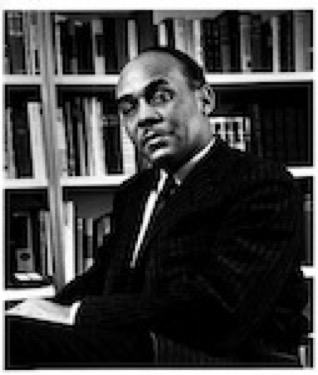Literary Critique - King of the Bingo Game
June/14/2016 01:20 PM Filed: Literary Critiques

Photo Credit: United States Information Agency
(Wikimedia Commons)
Gambling with a Higher Power
Ralph Ellison’s “King of the Bingo Game” was published in 1944. The narrator is distraught at the beginning of the story. Laura, a woman close to him, needs medical attention and money. The narrator, presumably her husband or lover, is determined to get it by playing bingo. When he wins his chance to spin the wheel for the jackpot, he becomes delusional about its power and cannot stop spinning it.
The wheel is a symbol of God. In the hands of this desperate man, it takes on supernatural strength. The narrator believes God will intervene as long as it keeps turning, and in the end, Laura will be healed. His aversion to letting the wheel stop indicates his fear of losing touch with this higher power if the outcome is not what he anticipates. As long as it keeps spinning, he feels safe, assured of its ability to help Laura.
From a psychological standpoint, this man is unstable. He suffers from obsessive-compulsive disorder, and in this bingo hall, he is having a nervous breakdown. Laura’s illness and the threat of her death have unhinged him to the point of madness. He must be removed from the stage. Just as physical force is used against him, the wheel stops at double zero, indicating he would have won.
Ellison writes, “He only felt the dull pain exploding in his skull, and he knew even as it slipped out of him that his luck had run out on the stage.”
The use of excessive, knockdown force at the end alludes to the difficult transition after the Civil War when some African Americans were subjected to brutal restraint at the hands of authorities. A period of thwarting and degradation followed emancipation, lasting into the 1940s and beyond.
By using one man as an example, Ellison’s somber message extends further than “the wheel is God.”